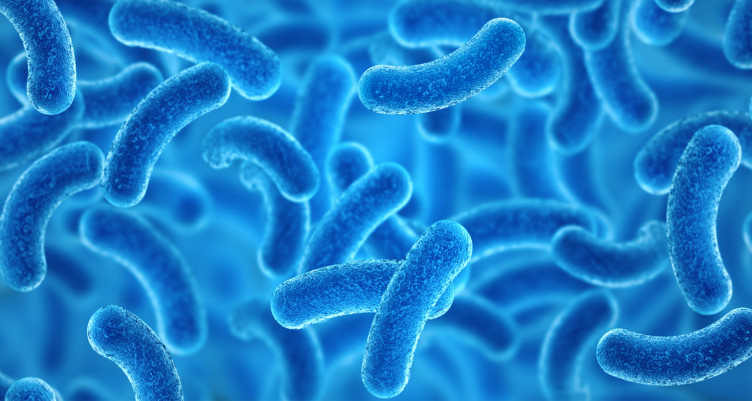How Alcohol Affects Your Immune System and How to Bounce Back

- What kind of toll does alcohol consumption take on the immune system?
- Alcohol affects your whole body—from dehydration to inflammation, in your gut to your organs.
- Learn more about alcohol and immunity, including how Bulletproof products can support gut bacteria and health.†
Hitting up a happy hour or relaxing with an adult beverage at home is not an uncommon way for people to wind down for the day or to socialize with friends. When it turns to excessive alcohol consumption, that’s when your body raises red flags.
You already know alcohol is not a health supplement, but what you might not know are the effects of alcohol on your immune function.
Immunity is the body’s ability to fight off unwanted pathogens that increase your susceptibility to getting sick. While drinking alcohol can weaken your immune system, there are steps you can take to help you feel better the next day.
So how does alcohol affect the immune system? Here’s what you should know about the relationship between alcohol and immune system function, plus tips to support and strengthen your immunity.
How does alcohol affect the immune system?

When your body is exposed to a threat, the immune system mounts a response to the attack to get rid of the foreign pathogen. In general, the healthier a person’s immune system is, the quicker their immune system can clear out an invading microorganism, bacteria, antigen or virus and recover from a disease.
So how exactly does alcohol affect your immune system? Let’s take a closer look.
Distracts your immune system
If your body is constantly working on getting rid of the alcohol, it may fail to notice new problems coming in the door. So when it comes to alcohol and immune system function, you could run into some potential problems.
Your brain plays a big role in sensing when it’s time to kick your immune response into high gear. In response to stress, your brain activates the hypothalamic, pituitary and adrenal (HPA) axis. The HPA axis is like a superhero, teaming up with your body’s immune cells to keep you healthy.
The problem is that your HPA axis views alcohol as a stressful event and elevates your stress hormone levels when you drink (hi, cortisol). Chronic exposure to alcohol can lead to HPA axis dysfunction and blunt your body’s response to other stressors.[1] That means your body has a harder time keeping healthy.
This is a long way of saying, alcohol is hard on your immune system, and over time, its effects are harder to deal with.
In fact, according to the CDC, drinking increases your chances of getting six different types of cancer—and the more you drink, the higher your chances.[2]
Damages your physical defenses
How does alcohol affect your immune system beyond being a distracting presence? Alcohol can damage the microscopic cilia in the top of the lungs that catch and stop harmful bacteria, antigens and viruses as they enter.[3] If the invaders get past the cilia, that’s bad news because alcohol also damages the last line of defense—the mucous membrane in the bottom of the lungs, which typically stop the bad guys from permeating the body. Studies show that drinking makes the lungs more susceptible to ailments like pneumonia, viruses and other respiratory infections.[4]
Related: How to Strengthen Your Immune System
How does alcohol affect your body?

Prepare yourself because the full disclosure doesn’t paint a pretty picture.
While the occasional alcoholic beverage can help you relax and makes social time more enjoyable, consuming alcohol can cause dehydration, deplete vitamins and nutrients, worsen sleep, cause inflammation and throw gut bacteria out of balance—all things that can weaken your body’s powers of immunity.
Here are the specifics on what happens in your body when you drink alcohol.
Reprioritizes metabolism
When you throw one down the hatch, your body puts everything else on hold.
Your body can’t store alcohol and wants it out pronto, so it drops what it’s doing and makes it the top priority for metabolism. That means alcohol cuts in line ahead of protein, carbohydrates and fats.
Alcohol gets a VIP escort to your liver, because it’s your liver’s job to break it down and get it out.[5] As the alcohol is processed, water and nutrients are used to flush it out, leaving your body depleted and dehydrated.
Causes of inflammation
You are probably one who already tries to manage your day-to-day health. You might also already be taking Bulletproof Turmeric Curcumin Complex for that baseline level of inflammation we can all experience. But have you ever considered how alcohol influences inflammation?
When your alcohol intake is a little too heavy, the toxins activate immune cells that promote inflammation. Chronic alcohol abuse can cause your immune system to malfunction, putting you at risk of contracting bacterial or viral infections.[6] It can also elevate levels of pro-inflammatory cytokines (a protein that controls the growth and action of other immune cells and blood cells) and negatively affect the gastrointestinal tract, lungs, liver and brain.[7]
Throws gut bacteria out of balance
You’ve been proactive in eating vegetables and supplementing your diet with Bulletproof Gut Health Collagen Protein and Bulletproof Coconut Charcoal for your gut health and function. The problem is that alcohol can throw a wrench in your gut microbiome’s delicate balance.
Alcohol causes rapid overgrowth of certain gut bacteria.[8] The toxins they produce overwhelm the helpful bacteria, disrupting the delicate systems that process your food and send signals to your immune system to protect the body. (For more about this, read about how your gut controls your immune system).
One study found that 30% of those with liver disease caused by alcohol have a rare strain of gut bacteria which produces a cell-killing toxin called cytolysin.[9] When stimulated by alcohol, another rapidly reproducing bacteria begins pumping out something called lipopolysaccharide (LPS). LPS overwhelms the gut’s gatekeeping bacteria, allowing these toxins to permeate the gut barrier and spread throughout the body to other organs.[10]
Toxins affect more than just your gut. It’s the liver’s job to filter these toxins and send them out of the body. As it tries to keep up over time, the liver eventually develops scarring—a potentially life-threatening condition called cirrhosis.[11]
Contributes to fatty liver disease
Not to get all doom and gloom, but according to the Cleveland Clinic, about 90% of people who drink 4 to 5 drinks per day over decades have fatty liver.[12] That’s reason enough to consider swapping the occasional drink for a mocktail.
Related: 6 Science-Backed Supplements for Gut Health
What do I do with this information?

The CDC defines moderate alcohol consumption as up to one drink per day for women and up to two drinks per day for men.[13] The National Institute on Alcohol Abuse and Alcoholism states that binge drinking (or heavy drinking) is more than 4 drinks per day for men and more than 3 drinks per day for women.[14]
It’s important to make informed decisions about your health. But what do we do with this general knowledge that alcohol is bad for us? Should we quit drinking altogether?
Here’s the bottom line: Lots of threats can affect your body’s immune system, from sleep quality to gut bacteria. Unlike other health factors, how much you drink is all in your hands.
Consider that alcohol can be part of our social lives, influencing how we connect with friends (virtually or otherwise). It could be something we enjoy at dinner with loved ones. If we drink once in a while, we get the benefits of an enjoyable connection. If we drink too much and too often, we lose those benefits and increase health risks.
We all know the habits of safe and responsible alcohol intake. Here are some tips to keep your body healthy:
- Follow a pattern of drinking infrequently — not every day.
- Schedule a “dry” stretch into your calendar monthly.
- Find alternate ways of “decompressing” after a long week, like a long talk with a friend or diving into a good book.
- If you have a difficult relationship with alcohol, speak to a professional.
If you’re craving something sippable, try these mocktail recipes for size:
- Keto Raspberry Thyme Fizz (without the gin)
- Sugar-Free Punch with Cinnamon, Mint and Lime
- Matcha Soda
Sign up for early access to sales, product launches, the latest Bulletproof news and more!



